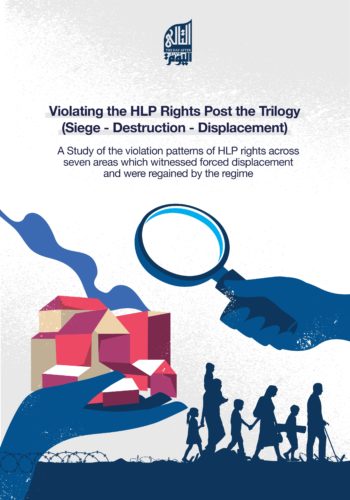The Day After: Supporting a Democratic Transition in Syria

The Day After Association (TDA) is an independent, Syrian-led civil society organization working to support a democratic transition in Syria. TDA is an outcome of The Day After project formed as a cooperative movement by members of Syrian opposition parties and unaffiliated figures to outline a plan to end the Syrian Civil War and rebuild the country.
The Project brought together a group of Syrians representing a large spectrum of the Syrian thinkers and leaders from inside Syria and the Syrian diaspora, representing all major political trends and components of Syrian society, to participate in an independent transition-planning process. The group published its plan in an August 2012 paper entitled The Day After Project: Supporting a Democratic Transition in Syria.” TDA was then established upon completion of work on a comprehensive approach to managing the challenges of a peaceful, rights-based and democratic transition in Syria.
The aforementioned 2012 paper provides a detailed framework of principles, goals and recommendations from within the Syrian opposition for addressing challenges in six key fields: rule of law; transitional justice; security sector reform; constitutional design; electoral system design; and post-conflict social and economic reconstruction. TDA has since shifted its focus from transition planning efforts to implementation of recommendations presented in the TDA report, opening its office in Istanbul to support this mission.
Between January and June 2012, members of the Day After project worked on a report that would attempt to address the major aspects of the future transition. They were aided by experts in international planning and diplomacy. The purpose of the report was not to be a rigid directive for restructuring the Syrian government, but rather to spark further conversation about the transition.
Six working groups each focused on an individual aspect of the new government that is to be set up, from restructuring the legal and justice system, to reforming the Syrian military, to writing a new constitution and setting up the system for electing a new Syrian legislature.
TDA has been a productive partner with HIC and HLRN by focusing on the restitution of housing, land and property (HLP) for Syrian refugees and displaced persons. Among TDA’s contributions has been the creation of knowledge about the means of denying HLP restitution. An alliance with academics and other experts had led to TDA’s production of a study of seven irregular-housing areas in Syria that the reporting government of Syrian Arab Republic has recaptured from the opposition since Russia’s military intervention in 2015. By 2018, the government and its allies were able to regain several territories across Syrian governorates. These included communities in Damascus, Aleppo, Homs, and Dar`a. The studied cases are Jobar, al-Tadamon, and Darayya, in Damascus and its rural area; al-Qusayr and Baba Amr, in Homs; as well as the camp neighborhood in Daraa city, and Jabal Badro neighborhood, in Aleppo. (See “Denying Remedy for Displaced and Refugee Syrians” in the Regional Developments section of this issue.)
That study fills much of the theoretical gap and proposes a preliminary classification of these numerous practices within a pattern that violates HLP rights. It has lifted a heavy curtain of secrecy about the practices in those areas over which the reporting government has regained control, providing a typology of practices obstructing the respect, protection and realization of the human right to remedy guaranteed in the Covenant.
Based on that study and HLRN monitoring, HIC-HLRN and TDA have prepared a parallel report to the UN Committee on Civil and Political Rights for its review of Syria, identifying the role of the state party’s various administrative agencies, security services, military, affiliated militias and informal formations depriving inhabitants of their human right to remedy, including remedy and reparation for gross violations. The underlying gross violations include forced eviction and loss of vital services and means of subsistence.
Future developments on the HIC-HLRN collaboration with TDA and the outcomes of advocacy in the UN Human Rights System will be reported in future pages of Land Times/أحوال الأرض.
In the meantime, contact The Day After`s website
References
Eddy, Melissa (28 August 2012). “Syrian Group Envisions Transition From Assad”, The New York Times, https://www.nytimes.com/2012/08/29/world/europe/syrian-group-envisions-transition-from-assad.html;
The United States Institute of Peace and German Institute for International and Security Affairs. (2012). “The Day After Project: Supporting a Democratic Transition in Syria,” https://web.archive.org/web/20120907005621/http://media.usip.org/reports/The-Day-After-Project-Summary.pdf;
Crossland, David. (28 August 2012). “Syrian Opposition Presents Vision for Day After Assad,” Der Spiegel, http://www.spiegel.de/international/world/syrian-opposition-presents-blueprint-for-shift-to-democracy-a-852602.html.
|